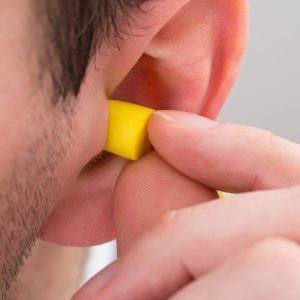Advertising Has Created Deaf-Mute Brands
 “Consumers do not listen”, Marc Mathieu, senior vice president of Brand Marketing at Unilever, said at the IAB Mobile Engage conference that was recently held in London. “New techniques and the intimidating speed of innovations ensure a drastic change in marketing”, he said.
“Consumers do not listen”, Marc Mathieu, senior vice president of Brand Marketing at Unilever, said at the IAB Mobile Engage conference that was recently held in London. “New techniques and the intimidating speed of innovations ensure a drastic change in marketing”, he said.
Alienated
In a few key phrases, Mathieu outlines some of the most pregnant worries of modern brand marketers. New technologies have fundamentally altered consumer behavior. It is no longer the brand that determines when it reaches the consumer. It is the consumer who decides at what moment he allows brands to get in. By adapting new technologies, advertisers try to respond to this power shift. Is that sufficient or is there more that brands can do to reduce alienation between consumers and brands?
Truth
Traditionally, the advertiser managed the communication process. It was mostly one-way traffic; there was no interaction, no dialogue. Brands had a powerful position. When power is out of balance, it is only a matter of time before this power will be abused. “Advertising is truth well told” is one of my favorite advertising slogans by advertising agency McCann. Have advertisers and their brands always told us the truth?
Uhm, not really.
Actuality
For years, Dutch advertising icon Eugene Roorda, told his audience that advertising admittedly was not always true or real, but it did not need to be: advertising creates its own reality. Advertising manipulates and consumers know that. Consumers know what to believe and what not to believe. Consumers do not need to be protected against advertising because they think advertising is fun. They love it! Advertising is an innocent and generally accepted form of public entertainment, so to speak.
Image of advertising
In reality, many years of advertising has increased the distance between brands and consumers. On a subconscious level, advertising has done its powerful work. At a conscious level, however, it has not contributed to its own credibility and recognition. Nor has it contributed to the reputation of all those professionals working in the advertising industry. On the contrary, advertising and advertising professionals have never had a good image amongst consumers and changes in advertising over the years have not changed this perception.
Gaining trust
Traditional one-way advertising has led to deaf-mute brands: they find it difficult to listen and respond. In addition to the technological challenges outlined by Unilever’s Mathieu, one of the biggest challenges for brands is to start listening to consumers and start a dialogue. Build relationships. Gain trust. Be credible. In a world where consumers no longer listen to brands but decide themselves whether and when to allow brands in their life, the credibility of brands will be a prerequisite for their success. In the end, brands will only become truly credible when they tell consumers the truth – and it’s OK if they make it look a little bit nicer than it really is.
Frans Reichardt | The Customer Listener





Plaats een Reactie
Meepraten?Draag gerust bij!